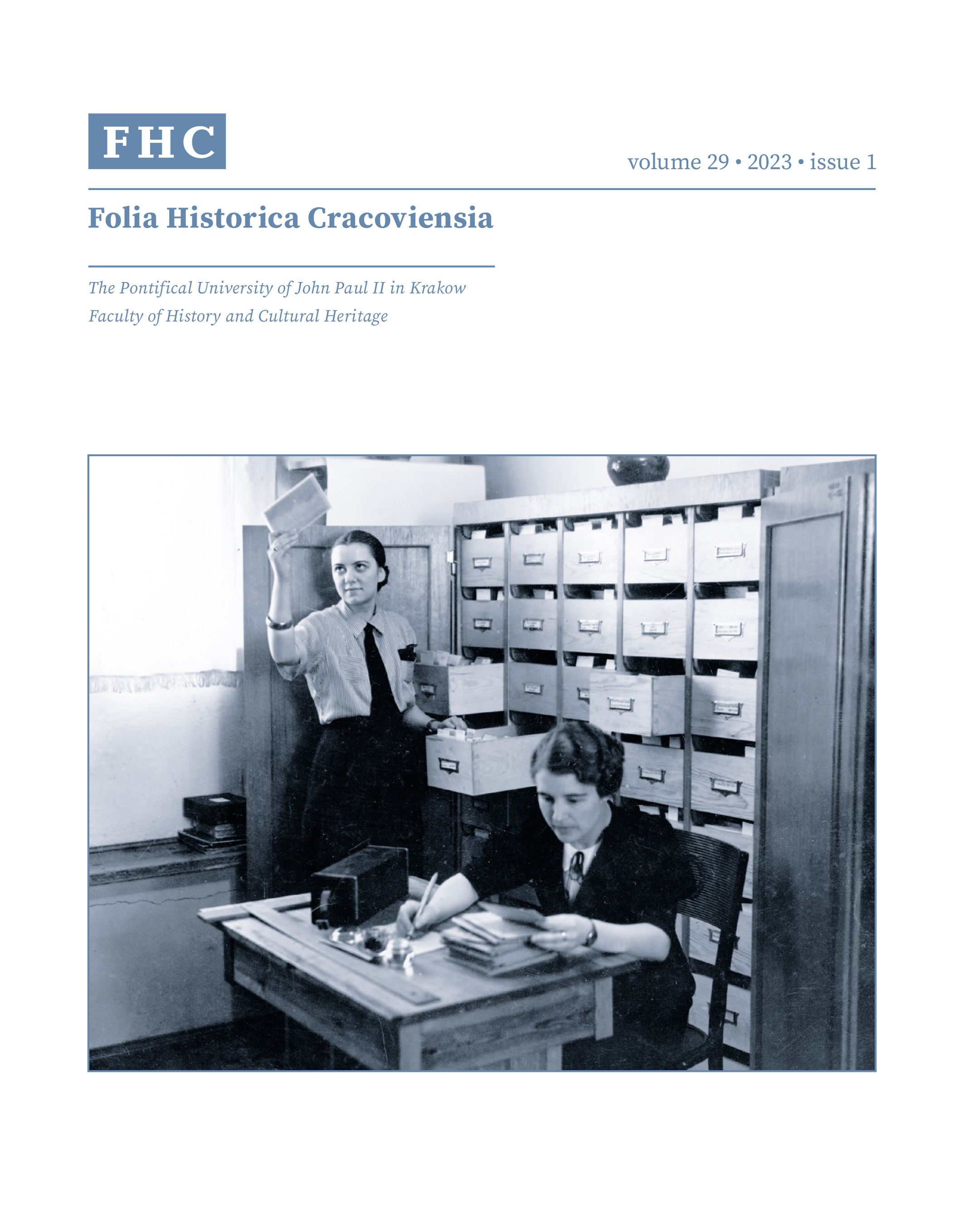Files of the Polish Welfare Committee Kraków–Miasto as a source for studying women’s history in 1939–1945
Files of the Polish Welfare Committee Kraków–Miasto as a source for studying women’s history in 1939–1945
Author(s): Anna CzocherSubject(s): Gender history, Welfare services, WW II and following years (1940 - 1949)
Published by: Wydawnictwo Naukowe Uniwersytetu Papieskiego Jana Pawła II w Krakowie
Keywords: German occupation; women’s history; charitable activities; everyday life; General Government
Summary/Abstract: Files of the Polish Welfare Committee Kraków–Miasto (Polish name: Polski Komitet Opiekuńczy Kraków-Miasto, acronym PolKO) are stored in the National Archives in Kraków and have been open to research for years. These files are a highly valuable source for researching the reality of life under occupation, and one of the archival collection whose potential is not being fully exploited by researchers. The purpose of this review is therefore an attempt to show the potential that the PolKO files contribute to the study of women’s history and its interdisciplinary potential. The Polish Welfare Committee Kraków–Miasto was a local branch of the Central Welfare Council (Rada Główna Opiekuńcza, RGO) that remained the only Polish welfare organisation in the General Government whose operation was permitted by the Germans. The records produced by the committee, albeit incomplete, reflect the main courses of activities these institutions undertook. Why can they useful as a source for researching women’s history? During the German occupation, official charitable activities became the domain of women. They were the majority among PolKO Kraków–Miasto personnel and cooperating individuals. The wartime circumstances also made women a majority among the committee’s beneficiaries. Analysing the PolKO records, you find information concerning both individual women’s motivation for embarking on charitable activity, the nature of work they performed, and the degree of involvement on the one hand, and reasons for poverty, and the types of support expected and delivered on the other.
Journal: Folia Historica Cracoviensia
- Issue Year: 29/2023
- Issue No: 1
- Page Range: 25-47
- Page Count: 23
- Language: English

